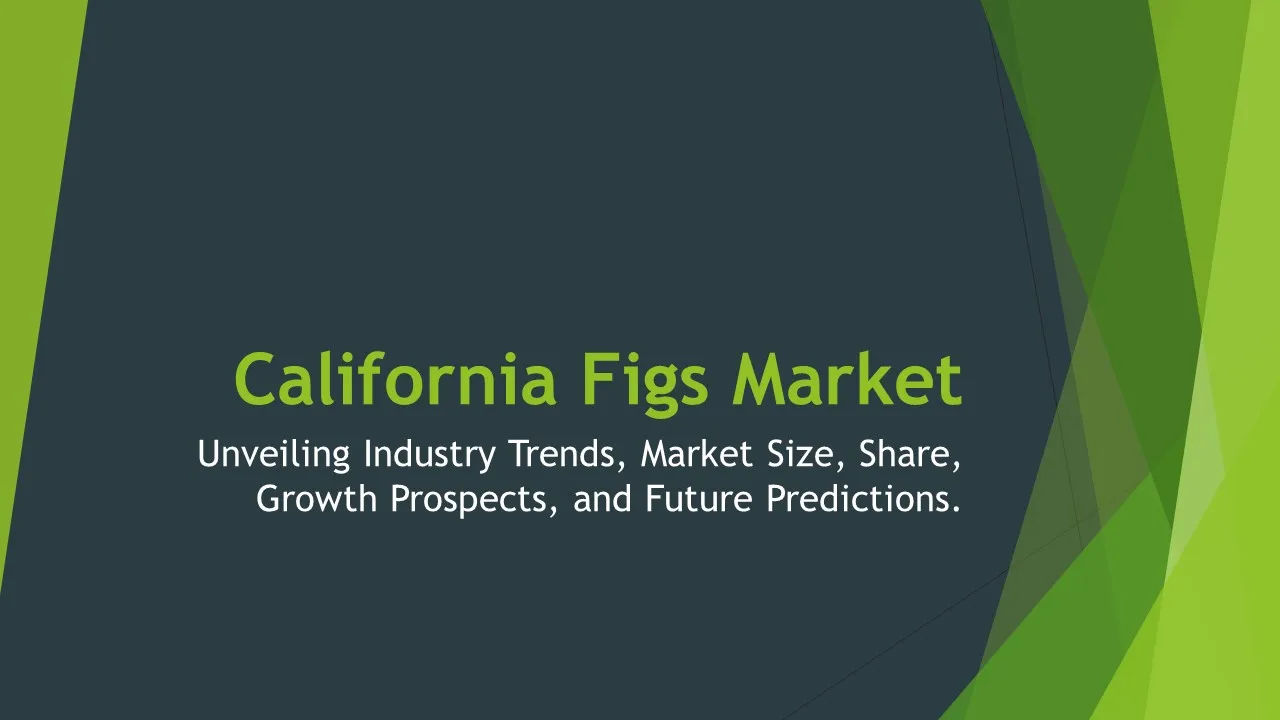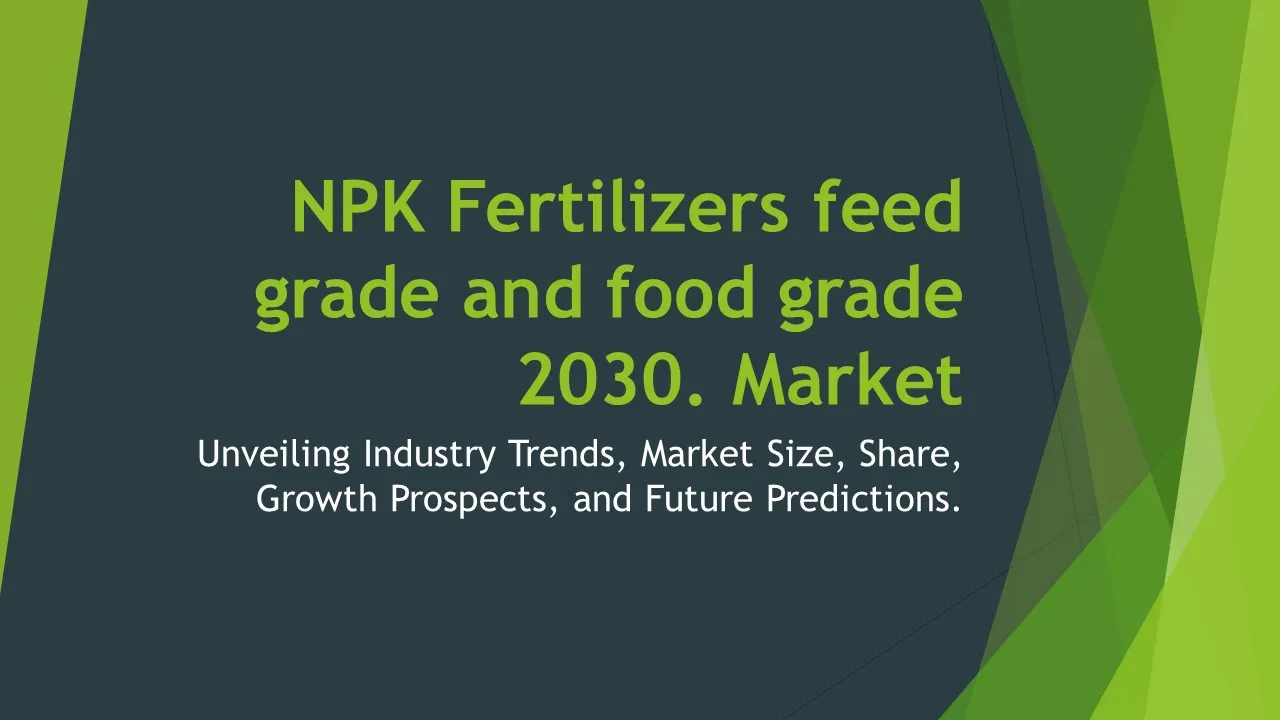Halal Sales
Halal Sales Market Segments - by Product Type (Halal Food, Halal Beverages, Halal Pharmaceuticals, Halal Cosmetics, Halal Personal Care), Application (Retail, Food Services, E-commerce, Others), Distribution Channel (Supermarkets/Hypermarkets, Convenience Stores, Online Retail, Others), Ingredient Type (Halal Meat, Halal Dairy, Halal Confectionery, Halal Snacks, Halal Beverages), and Region (Asia Pacific, North America, Latin America, Europe, Middle East & Africa) - Global Industry Analysis, Growth, Share, Size, Trends, and Forecast
- Report Preview
- Table Of Content
- Segments
- Methodology
Halal Sales Market Outlook
The global Halal sales market is projected to reach approximately USD 3 trillion by 2025, expanding at a compound annual growth rate (CAGR) of around 5.6% from 2023 to 2030. This robust growth can be attributed to the increasing Muslim population worldwide, which drives demand for Halal-compliant products across various sectors. The rising awareness regarding health and wellness, coupled with the growing preference for ethically sourced food options, has further catalyzed market growth. Additionally, the globalization of food supply chains and the rise of e-commerce platforms have made Halal products more accessible to consumers, thus propelling market penetration in non-Muslim-majority countries. Furthermore, the increasing number of certifications and standards for Halal products has bolstered consumer trust, facilitating more consistent growth in this market.
Growth Factor of the Market
One of the prominent growth factors for the Halal sales market is the rise in the global Muslim population, which is projected to exceed 2 billion by 2030. This demographic shift is key, as it directly correlates with heightened demand for Halal products across various sectors, including food, beverages, and cosmetics. Furthermore, there is an increasing trend among non-Muslims who are opting for Halal products due to perceived health benefits and superior quality. With a growing emphasis on ethical consumption and sustainable sourcing, more businesses are seeking Halal certification to cater to a wider audience. The rise of social media and online platforms has also enabled businesses to reach diverse consumer bases, creating more awareness and availability of Halal products. Lastly, government support in the form of regulations and policies promoting Halal compliance has encouraged investments in this sector, fueling further growth.
Key Highlights of the Market
- The global Halal sales market is projected to reach USD 3 trillion by 2025, growing at a CAGR of 5.6%.
- Increasing Muslim population globally is a primary driver for market growth.
- Growing awareness regarding health and ethical consumption fuels demand.
- Rise of e-commerce platforms enhances product accessibility.
- Government regulations supporting Halal certification promote market expansion.
By Product Type
Halal Food:
Halal food constitutes a significant segment of the Halal sales market, as it encompasses all food items that comply with Islamic dietary laws. This includes meat products, grains, fruits, and vegetables that are processed and prepared according to Halal standards. The increasing awareness of Halal dietary guidelines and the rising population of health-conscious consumers has propelled the demand for Halal food products. Furthermore, the expansion of the Halal food supply chain, including the establishment of Halal-certified slaughterhouses and food processing units, has contributed to the steady growth of this segment. With the globalization of food products and the growing acceptance of diverse food cultures, Halal food is gaining traction even among non-Muslim consumers, thereby broadening its market reach.
Halal Beverages:
The Halal beverages segment is also experiencing robust growth, driven by a diverse range of products that include juices, soft drinks, and even alcoholic alternatives. The global trend towards healthier lifestyles has prompted consumers to seek beverages that are not only Halal-compliant but also free from artificial additives and preservatives. This segment is further bolstered by the increasing availability of Halal-certified beverages in both retail and online channels. With the rise of innovative product offerings, such as plant-based drinks and functional beverages, the Halal beverages segment is poised for continued growth. As consumers become more discerning about their beverage choices, the demand for Halal beverages that offer both quality and compliance with dietary laws is expected to rise significantly.
Halal Pharmaceuticals:
The Halal pharmaceuticals segment is emerging as a vital area of growth within the Halal sales market, addressing the needs of Muslim consumers seeking medications that comply with Islamic law. This segment includes a wide range of products, from over-the-counter medications to prescription drugs. The growing awareness among consumers about the contents of pharmaceuticals, along with the rise in chronic diseases, has led to an increased demand for Halal-certified medications. Furthermore, pharmaceutical companies are increasingly focusing on sourcing Halal-certified ingredients for their formulations, enhancing product credibility. The collaboration between regulatory bodies and pharmaceutical companies to standardize Halal compliance further promotes market growth, ensuring that Muslim consumers can access safe and effective medication options.
Halal Cosmetics:
Halal cosmetics represent another flourishing segment within the Halal sales market. As consumers become increasingly aware of the ingredients in personal care items, the demand for Halal-certified cosmetics has surged. This segment encompasses a variety of products, including skincare, makeup, and hair care items that adhere to Halal guidelines. The growing trend of ethical and natural beauty products has catalyzed consumer interest in Halal cosmetics, as they are often perceived as safer and more environmentally friendly. Major cosmetic brands are now expanding their product lines to include Halal options, thereby attracting a wider clientele. Additionally, the increasing popularity of vegan and cruelty-free products aligns closely with Halal principles, thus further strengthening the Halal cosmetics market.
Halal Personal Care:
Halal personal care products encompass a wide array of items such as soaps, shampoos, and deodorants that comply with Islamic laws. The increasing focus on personal hygiene and grooming, particularly in the wake of global health crises, has spurred growth in this segment. Consumers are becoming more conscious about the quality and ethics behind their personal care products, leading to an increased demand for Halal options. The Halal certification process ensures that these products are free from forbidden ingredients, thereby appealing to a broad spectrum of consumers. The market for Halal personal care products is anticipated to grow as more brands recognize the importance of including Halal-certified offerings in their portfolios, catering to the needs of discerning customers.
By Application
Retail:
The retail application of Halal products is a key driver of market growth, as it includes grocery stores, supermarkets, and specialty stores dedicated to Halal goods. With the rise in consumer preferences for Halal products, retail outlets are increasingly stocking a variety of Halal-certified items, thus enhancing product visibility. Retailers are also investing in marketing strategies aimed at educating consumers about the benefits of Halal products, which has contributed to increased sales. The integration of Halal options into mainstream grocery chains indicates the growing acceptance of Halal products among diverse consumer demographics. The retail channel remains a critical pillar for the expansion of the Halal market, ensuring accessibility and convenience for consumers seeking Halal-certified products.
Food Services:
The food services segment, which includes restaurants, catering services, and food trucks, plays a significant role in the Halal sales market. The increasing demand for Halal-compliant food in dining establishments has prompted many restaurants to seek Halal certification, thus appealing to a broader clientele. As the global population of Muslims continues to grow, food service providers are keen to offer Halal menus to cater to this demographic. The segment also benefits from the trend of food awareness and the growing preference for fresh and ethically sourced ingredients. Moreover, the rise of food delivery services has enabled Halal food providers to reach a larger audience, making it more convenient for consumers to access Halal-compliant meals.
E-commerce:
The e-commerce application of Halal sales has seen a significant surge, particularly in recent years. With the increasing penetration of the internet and mobile technology, consumers are turning to online platforms to purchase Halal products. E-commerce enables better product discovery and provides access to a wider variety of Halal options, including those that may not be available in local stores. Many businesses are establishing specialized online marketplaces dedicated to Halal products, further enriching the shopping experience for consumers. The convenience of online shopping, combined with the ongoing expansion of delivery services, has made it easier for consumers to access Halal products from the comfort of their homes. This trend is expected to continue, making e-commerce a vital channel for the growth of the Halal sales market.
Others:
Other applications for Halal products also contribute to market growth, encompassing sectors such as hospitality, healthcare, and education. In hospitality, hotels that accommodate Muslim travelers are increasingly offering Halal food options and services tailored to meet their needs. Healthcare providers are recognizing the importance of offering Halal-compliant medications and personal care products to cater to Muslim patients. Educational institutions are also incorporating Halal options into their dining services to provide inclusive environments for all students. As the understanding and recognition of Halal principles expand beyond traditional sectors, these other applications are expected to play a larger role in the overall Halal sales market.
By Distribution Channel
Supermarkets/Hypermarkets:
Supermarkets and hypermarkets are key distribution channels for Halal products, offering consumers a one-stop shopping experience for a variety of Halal-certified items. These retail giants have recognized the growing demand for Halal products and are expanding their offerings accordingly. The convenience of finding Halal food, beverages, and personal care items in one location attracts a diverse customer base, including both Muslim and non-Muslim consumers. Additionally, supermarkets often have dedicated Halal sections, which not only enhances product visibility but also aids consumers in making informed choices. With increased marketing efforts to promote Halal products, this distribution channel is expected to witness significant growth in the coming years.
Convenience Stores:
Convenience stores are increasingly becoming important distribution channels for Halal products, primarily due to their accessibility and the fast-paced lifestyle of modern consumers. These stores often cater to urban populations, where the demand for quick and easy access to Halal-compliant items is rising. The offerings may include ready-to-eat meals, snacks, and beverages that meet Halal guidelines. As convenience stores adopt a more diverse product strategy, they are starting to feature Halal-certified goods to meet the needs of their local communities. The growth of convenience stores as distribution points for Halal products presents an opportunity to reach a wider audience effectively and conveniently.
Online Retail:
The online retail distribution channel is rapidly transforming the way consumers access Halal products. E-commerce platforms are increasingly including Halal-certified options, allowing consumers to browse and purchase from the comfort of their homes. This channel is particularly advantageous for customers in regions with limited access to Halal stores, as it offers a broader selection of products and brands. Online retail also provides opportunities for niche Halal brands to enter the market without the high overhead costs associated with physical stores. As technology advances and logistics capabilities improve, the online retail sector is expected to witness tremendous growth, making it a crucial component of the overall Halal sales market.
Others:
Other distribution channels for Halal products include specialty stores, wholesalers, and food service providers. Specialty stores focusing exclusively on Halal items cater to consumers seeking specific products that meet their dietary needs. Wholesalers play a vital role in sourcing Halal products from manufacturers and distributing them to retailers and food service establishments. Food service providers, such as restaurants and catering services, also serve as important distribution points for Halal food, offering consumers dining options that comply with Islamic dietary laws. As the market continues to expand, these alternative distribution channels will gain significance, ensuring that Halal products are readily available to consumers across different segments.
By Ingredient Type
Halal Meat:
Halal meat is one of the cornerstone components of the Halal sales market, as it adheres to specific slaughtering practices mandated by Islamic law. The demand for Halal meat is particularly strong among Muslim consumers, who seek assurance that their food complies with their religious beliefs. Additionally, there is an increasing trend among non-Muslim consumers who choose Halal meat for its perceived quality and ethical sourcing. The supply chain for Halal meat is expanding, with more farms and processing facilities obtaining Halal certification, which enhances product availability. As consumer awareness about the benefits of Halal meat grows, this segment is expected to see sustained growth in the coming years.
Halal Dairy:
The Halal dairy segment is gaining prominence as consumers increasingly recognize the importance of Halal compliance in all food categories, including dairy products. This segment encompasses a wide range of items, including milk, cheese, yogurt, and other dairy-based products that meet Halal standards. The growing popularity of dairy alternatives, such as plant-based milks, that are Halal-certified is also on the rise. As consumers become more health-conscious and aware of the ingredients in their food, the demand for Halal dairy products is projected to increase. Additionally, collaborations between dairy producers and certification bodies are promoting transparency and trust in Halal dairy offerings, further fueling market growth.
Halal Confectionery:
Halal confectionery products, which include candies, chocolates, and other sweet treats, are a rapidly growing segment within the Halal sales market. As more consumers seek sweet options that align with their dietary restrictions, manufacturers are increasingly focusing on producing Halal-certified confectionery items. The demand for Halal sweets is particularly strong during festive seasons and events, driving sales during these periods. The availability of innovative flavors and product offerings is attracting a broader audience, including non-Muslim consumers who appreciate high-quality confectionery. As the confectionery market continues to evolve, Halal options will likely gain further traction, contributing to overall market growth.
Halal Snacks:
Halal snacks encompass a broad range of products, from chips and crackers to bars and dried fruits, catering to the on-the-go consumer lifestyle. As demand for convenient and tasty snack options rises, the Halal snacks segment is experiencing significant growth. The increasing trend of health-focused snacking has led manufacturers to introduce Halal-certified options that are not only compliant but also nutritious and flavorful. The proliferation of specialty health stores and online platforms offering Halal snacks has further enhanced the availability of these products, catering to a diverse consumer base. As the snacking culture continues to evolve, the Halal snacks segment is poised for sustained expansion, attracting consumers from various backgrounds.
Halal Beverages:
Halal beverages include a wide variety of drinks, such as juices, teas, and non-alcoholic cocktails that comply with Halal guidelines. The segment is experiencing robust growth, fueled by an increasing preference for healthy and ethically sourced beverages. Consumers are becoming more discerning about the ingredients in their drinks, leading to a rise in demand for Halal-certified options. The availability of innovative beverage products that cater to diverse tastes and preferences is further enriching this segment. Additionally, the rise of social media marketing has helped create awareness about Halal beverages, making them more accessible to consumers. As the beverage industry evolves, Halal options will likely become more mainstream, contributing to the overall market growth.
By Region
The Asia Pacific region holds a dominant share of the Halal sales market, primarily due to the large Muslim population in countries like Indonesia, Malaysia, and Pakistan. With an estimated market size of over USD 1.5 trillion, this region is experiencing a CAGR of around 6.2% as consumer demand for Halal products continues to rise. The growing middle-class population in these countries, combined with increasing awareness about Halal standards, is driving market growth significantly. Additionally, the presence of established supply chains and local producers offering Halal-certified products further bolsters the region's market expansion, catering to both local and international consumers.
North America and Europe are also witnessing significant growth in the Halal sales market, primarily driven by the increasing Muslim population and the rising awareness among non-Muslims about the benefits of Halal products. The North American market is projected to reach approximately USD 600 billion by 2025, with a CAGR of 5.0% as Halal options become more widely available in mainstream retail. Meanwhile, the European market is expected to grow steadily, with countries like the UK and Germany leading the demand for Halal products. The collaboration between retailers and suppliers to ensure the availability of Halal items in grocery stores is further enhancing market growth in these regions.
Opportunities
The Halal sales market presents numerous opportunities for growth, particularly in the realm of product innovation and diversification. As consumer preferences continue to evolve, there is a growing demand for new and unique Halal offerings, including ready-to-eat meals, plant-based alternatives, and health-oriented products. Companies that invest in research and development to create innovative Halal products can tap into this burgeoning market and cater to diverse consumer needs. Moreover, the expansion of e-commerce presents an excellent opportunity for Halal brands to reach a wider audience, thereby increasing their visibility and sales. Online platforms allow for targeted marketing strategies, enabling brands to effectively engage with consumers and foster brand loyalty.
Additionally, the collaboration between government entities, regulatory bodies, and private sectors to promote Halal certification presents a significant opportunity for market growth. As more organizations and businesses seek to obtain Halal certification, the overall market becomes more robust and credible. This collaboration can lead to the establishment of standardized guidelines and certifications, increasing consumer trust in Halal products. Furthermore, the growing focus on ethical consumption and sustainable sourcing aligns closely with Halal principles, providing brands with the potential to position themselves as ethical leaders in the market. By leveraging these opportunities, companies within the Halal sales market can drive growth and enhance their competitive advantage.
Threats
Despite the opportunities for growth, the Halal sales market also faces significant threats that could impede its progress. One major concern is the inconsistency in Halal certification standards across different regions and organizations. This lack of standardization can lead to confusion among consumers and skepticism regarding the authenticity of Halal claims. Moreover, counterfeit products claiming to be Halal pose a threat to both consumers and genuine brands, undermining trust in the market. As a result, regulatory bodies must work diligently to establish clearer and more uniform certification processes to alleviate these concerns. Failure to address these issues could hinder the market's growth and reputation.
Another critical threat to the Halal sales market is the presence of non-Halal competitors offering similar products that appeal to the same consumer base. As the demand for ethically sourced and high-quality products rises, non-Halal brands may enter the market with compelling alternatives, thereby diluting the competitive edge of Halal products. Additionally, economic fluctuations and changing consumer preferences could impact the purchasing power of consumers, leading to a decline in Halal product sales. To counter these threats, Halal brands must focus on building strong brand identities and increasing awareness about the unique benefits of Halal products, ensuring that they remain relevant in a competitive landscape.
Competitor Outlook
- Al Islami Foods
- Nestlé
- Pillars of Halal
- HMC (Halal Monitoring Committee)
- Cargill
- Arabian Food Industries Co. (AFIC)
- Al-Ameen Foods
- Frieda's Specialty Produce
- Meat & Livestock Australia (MLA)
- Kraft Heinz Company
- Panda Express
- Khalaf Foods
- Perishables & Halal
- Del Monte Foods
- Sun Foods
The overall competitive landscape of the Halal sales market is characterized by a mix of established food conglomerates, niche brands, and specialized Halal producers. Major players in the industry are increasingly recognizing the potential of the Halal market and are expanding their product offerings to include Halal-certified options, thereby catering to the growing demand. The competition is primarily driven by factors such as product quality, authenticity, pricing, and brand recognition. Companies that successfully build strong relationships with certification bodies and consistently deliver high-quality products are more likely to gain consumer trust and loyalty.
Key players like Nestlé and Kraft Heinz Company have made significant strides in incorporating Halal products into their existing portfolios, leveraging their extensive distribution networks and brand reputation to reach a broader audience. These organizations are investing in marketing strategies to raise awareness about their Halal offerings, educating consumers about the benefits of choosing Halal products. Additionally, smaller niche brands, such as Al Islami Foods and Khalaf Foods, are carving out their own space in the market by focusing solely on Halal products and emphasizing their authenticity and commitment to quality.
Furthermore, the role of certification bodies cannot be underestimated in shaping the competitive landscape of the Halal sales market. Organizations like the Halal Monitoring Committee (HMC) play a crucial role in providing credible certification, ensuring that consumers can trust the Halal products they purchase. This collaboration between producers and regulatory bodies is essential for maintaining the integrity of the Halal market and fostering consumer confidence. As more companies enter the Halal space, the need for reliable certifications and adherence to quality standards will become increasingly important in differentiating brands and maintaining competitive advantage.
1 Appendix
- 1.1 List of Tables
- 1.2 List of Figures
2 Introduction
- 2.1 Market Definition
- 2.2 Scope of the Report
- 2.3 Study Assumptions
- 2.4 Base Currency & Forecast Periods
3 Market Dynamics
- 3.1 Market Growth Factors
- 3.2 Economic & Global Events
- 3.3 Innovation Trends
- 3.4 Supply Chain Analysis
4 Consumer Behavior
- 4.1 Market Trends
- 4.2 Pricing Analysis
- 4.3 Buyer Insights
5 Key Player Profiles
- 5.1 Cargill
- 5.1.1 Business Overview
- 5.1.2 Products & Services
- 5.1.3 Financials
- 5.1.4 Recent Developments
- 5.1.5 SWOT Analysis
- 5.2 Sun Foods
- 5.2.1 Business Overview
- 5.2.2 Products & Services
- 5.2.3 Financials
- 5.2.4 Recent Developments
- 5.2.5 SWOT Analysis
- 5.3 Khalaf Foods
- 5.3.1 Business Overview
- 5.3.2 Products & Services
- 5.3.3 Financials
- 5.3.4 Recent Developments
- 5.3.5 SWOT Analysis
- 5.4 Nestlé
- 5.4.1 Business Overview
- 5.4.2 Products & Services
- 5.4.3 Financials
- 5.4.4 Recent Developments
- 5.4.5 SWOT Analysis
- 5.5 Panda Express
- 5.5.1 Business Overview
- 5.5.2 Products & Services
- 5.5.3 Financials
- 5.5.4 Recent Developments
- 5.5.5 SWOT Analysis
- 5.6 Al-Ameen Foods
- 5.6.1 Business Overview
- 5.6.2 Products & Services
- 5.6.3 Financials
- 5.6.4 Recent Developments
- 5.6.5 SWOT Analysis
- 5.7 Al Islami Foods
- 5.7.1 Business Overview
- 5.7.2 Products & Services
- 5.7.3 Financials
- 5.7.4 Recent Developments
- 5.7.5 SWOT Analysis
- 5.8 Del Monte Foods
- 5.8.1 Business Overview
- 5.8.2 Products & Services
- 5.8.3 Financials
- 5.8.4 Recent Developments
- 5.8.5 SWOT Analysis
- 5.9 Pillars of Halal
- 5.9.1 Business Overview
- 5.9.2 Products & Services
- 5.9.3 Financials
- 5.9.4 Recent Developments
- 5.9.5 SWOT Analysis
- 5.10 Kraft Heinz Company
- 5.10.1 Business Overview
- 5.10.2 Products & Services
- 5.10.3 Financials
- 5.10.4 Recent Developments
- 5.10.5 SWOT Analysis
- 5.11 Perishables & Halal
- 5.11.1 Business Overview
- 5.11.2 Products & Services
- 5.11.3 Financials
- 5.11.4 Recent Developments
- 5.11.5 SWOT Analysis
- 5.12 Frieda's Specialty Produce
- 5.12.1 Business Overview
- 5.12.2 Products & Services
- 5.12.3 Financials
- 5.12.4 Recent Developments
- 5.12.5 SWOT Analysis
- 5.13 HMC (Halal Monitoring Committee)
- 5.13.1 Business Overview
- 5.13.2 Products & Services
- 5.13.3 Financials
- 5.13.4 Recent Developments
- 5.13.5 SWOT Analysis
- 5.14 Meat & Livestock Australia (MLA)
- 5.14.1 Business Overview
- 5.14.2 Products & Services
- 5.14.3 Financials
- 5.14.4 Recent Developments
- 5.14.5 SWOT Analysis
- 5.15 Arabian Food Industries Co. (AFIC)
- 5.15.1 Business Overview
- 5.15.2 Products & Services
- 5.15.3 Financials
- 5.15.4 Recent Developments
- 5.15.5 SWOT Analysis
- 5.1 Cargill
6 Market Segmentation
- 6.1 Halal Sales Market, By Application
- 6.1.1 Retail
- 6.1.2 Food Services
- 6.1.3 E-commerce
- 6.1.4 Others
- 6.2 Halal Sales Market, By Product Type
- 6.2.1 Halal Food
- 6.2.2 Halal Beverages
- 6.2.3 Halal Pharmaceuticals
- 6.2.4 Halal Cosmetics
- 6.2.5 Halal Personal Care
- 6.3 Halal Sales Market, By Ingredient Type
- 6.3.1 Halal Meat
- 6.3.2 Halal Dairy
- 6.3.3 Halal Confectionery
- 6.3.4 Halal Snacks
- 6.3.5 Halal Beverages
- 6.4 Halal Sales Market, By Distribution Channel
- 6.4.1 Supermarkets/Hypermarkets
- 6.4.2 Convenience Stores
- 6.4.3 Online Retail
- 6.4.4 Others
- 6.1 Halal Sales Market, By Application
7 Competitive Analysis
- 7.1 Key Player Comparison
- 7.2 Market Share Analysis
- 7.3 Investment Trends
- 7.4 SWOT Analysis
8 Research Methodology
- 8.1 Analysis Design
- 8.2 Research Phases
- 8.3 Study Timeline
9 Future Market Outlook
- 9.1 Growth Forecast
- 9.2 Market Evolution
10 Geographical Overview
- 10.1 Europe - Market Analysis
- 10.1.1 By Country
- 10.1.1.1 UK
- 10.1.1.2 France
- 10.1.1.3 Germany
- 10.1.1.4 Spain
- 10.1.1.5 Italy
- 10.1.1 By Country
- 10.2 Halal Sales Market by Region
- 10.3 Asia Pacific - Market Analysis
- 10.3.1 By Country
- 10.3.1.1 India
- 10.3.1.2 China
- 10.3.1.3 Japan
- 10.3.1.4 South Korea
- 10.3.1 By Country
- 10.4 Latin America - Market Analysis
- 10.4.1 By Country
- 10.4.1.1 Brazil
- 10.4.1.2 Argentina
- 10.4.1.3 Mexico
- 10.4.1 By Country
- 10.5 North America - Market Analysis
- 10.5.1 By Country
- 10.5.1.1 USA
- 10.5.1.2 Canada
- 10.5.1 By Country
- 10.6 Middle East & Africa - Market Analysis
- 10.6.1 By Country
- 10.6.1.1 Middle East
- 10.6.1.2 Africa
- 10.6.1 By Country
- 10.1 Europe - Market Analysis
11 Global Economic Factors
- 11.1 Inflation Impact
- 11.2 Trade Policies
12 Technology & Innovation
- 12.1 Emerging Technologies
- 12.2 AI & Digital Trends
- 12.3 Patent Research
13 Investment & Market Growth
- 13.1 Funding Trends
- 13.2 Future Market Projections
14 Market Overview & Key Insights
- 14.1 Executive Summary
- 14.2 Key Trends
- 14.3 Market Challenges
- 14.4 Regulatory Landscape
Segments Analyzed in the Report
The global Halal Sales market is categorized based on
By Product Type
- Halal Food
- Halal Beverages
- Halal Pharmaceuticals
- Halal Cosmetics
- Halal Personal Care
By Application
- Retail
- Food Services
- E-commerce
- Others
By Distribution Channel
- Supermarkets/Hypermarkets
- Convenience Stores
- Online Retail
- Others
By Ingredient Type
- Halal Meat
- Halal Dairy
- Halal Confectionery
- Halal Snacks
- Halal Beverages
By Region
- Asia Pacific
- North America
- Latin America
- Europe
- Middle East & Africa
Key Players
- Al Islami Foods
- Nestlé
- Pillars of Halal
- HMC (Halal Monitoring Committee)
- Cargill
- Arabian Food Industries Co. (AFIC)
- Al-Ameen Foods
- Frieda's Specialty Produce
- Meat & Livestock Australia (MLA)
- Kraft Heinz Company
- Panda Express
- Khalaf Foods
- Perishables & Halal
- Del Monte Foods
- Sun Foods
- Publish Date : Jan 21 ,2025
- Report ID : FO-39309
- No. Of Pages : 100
- Format : |
- Ratings : 4.5 (110 Reviews)









